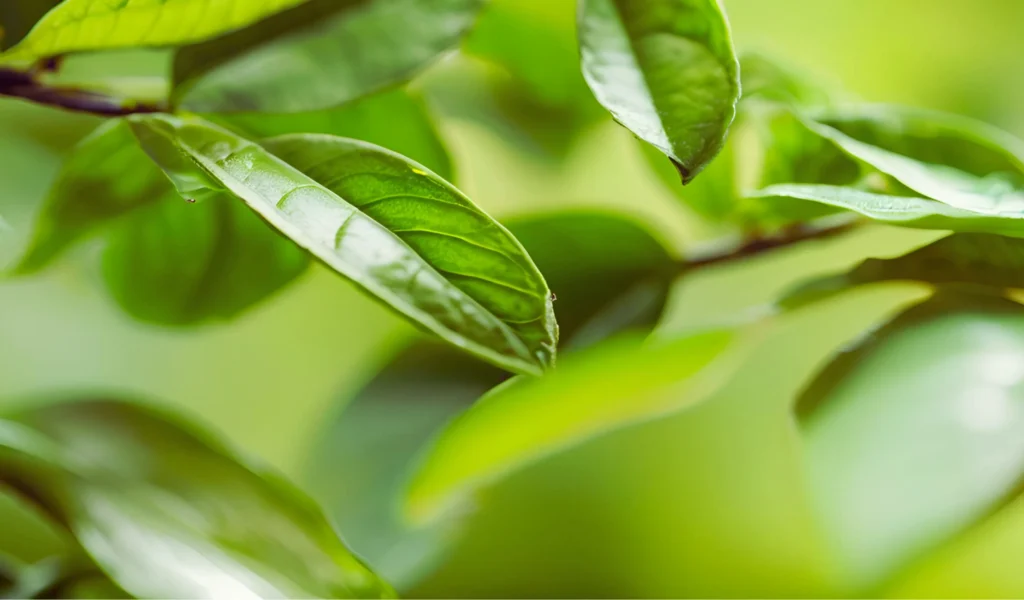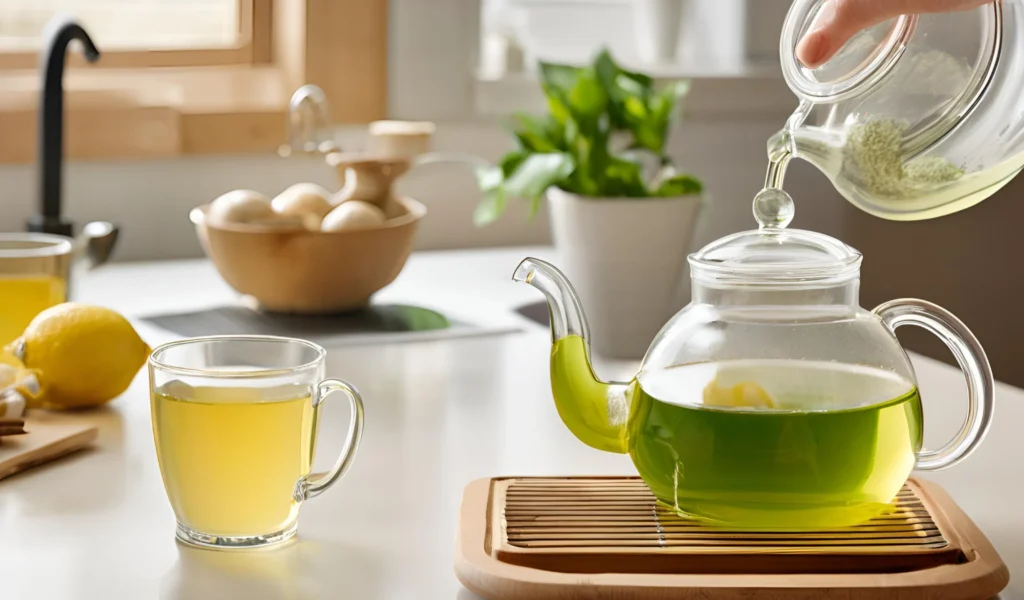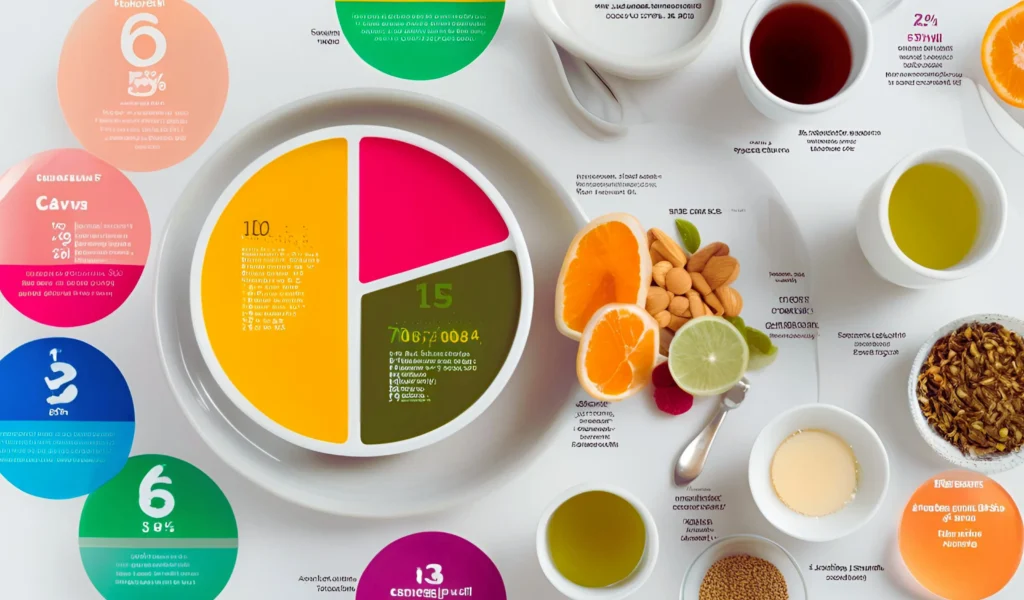Bariatric Tea Recipe: A Step-by-Step Guide to Post-Surgery Wellness
Meta Description: Discover a simple bariatric tea recipe to boost weight loss, improve digestion, and enhance metabolism. Perfect for post-surgery wellness.
Introduction
After bariatric surgery, making the right dietary choices can be a real game-changer. Your new lifestyle calls for light, nutrient-rich meals and beverages that support healing, digestion, and weight management. One such gem is a bariatric tea recipe. This soothing, metabolism-boosting drink combines the goodness of green tea, ginger, and lemon into a comforting brew that’s easy to make.
In this article, we’ll dive into the benefits of bariatric tea, explore the essential ingredients, and guide you through a simple recipe tailored to your needs. We’ll also touch on how this tea fits seamlessly into your diet, making recovery and wellness an enjoyable journey.
Part 1: Introduction to Bariatric Tea
What Is Bariatric Tea?
Bariatric tea is a specially crafted beverage designed to meet the needs of individuals who’ve undergone bariatric surgery. Unlike regular teas, it focuses on gentle, digestion-friendly ingredients like ginger, lemon, and green tea. These components not only complement a low-calorie diet but also enhance overall well-being by promoting hydration and reducing inflammation.
This tea is light on the stomach, which is a significant advantage for post-surgery patients. While regular caffeinated drinks can irritate or overwhelm your system, bariatric tea provides a gentle, nutrient-packed alternative that soothes as it heals.
Importance in Post-Surgery Diet
After bariatric surgery, your stomach’s capacity and ability to process foods change significantly. That’s where bariatric tea shines—it’s hydrating, easy to digest, and loaded with natural health boosters. With its metabolism-enhancing properties, it helps burn calories more efficiently while aiding digestion. Plus, its comforting warmth can alleviate bloating or discomfort that sometimes follows meals.
Hydration is another critical factor. Many bariatric patients struggle to drink enough fluids daily. Incorporating a flavorful tea into your routine can make sipping throughout the day more enjoyable, ensuring you stay hydrated without added sugars or unnecessary calories.
By starting your day with a cup of this nourishing tea or enjoying it as a midday refresher, you’re not just sipping a beverage; you’re embracing a healthier lifestyle that’s perfectly tailored to your new journey.
Part 2: Health Benefits of Bariatric Tea
Aiding Weight Loss
One of the standout benefits of bariatric tea lies in its ability to support weight loss. Thanks to ingredients like green tea and lemon, this brew becomes a powerful ally in burning fat. Green tea is rich in catechins, particularly epigallocatechin gallate (EGCG), which has been widely studied for its ability to enhance fat oxidation and thermogenesis. Combined with the metabolism-boosting properties of lemon juice, the tea becomes a low-calorie option to help shed pounds naturally.
Lemon adds another dimension by aiding in calorie reduction. Its high vitamin C content not only supports fat metabolism but also acts as a mild diuretic, reducing water weight. Anecdotal testimonials from bariatric patients often highlight how incorporating bariatric tea into their routines helped maintain consistent weight loss while keeping them refreshed. With every sip, you’re not just hydrating—you’re taking active steps toward achieving your weight management goals.

Improving Digestion
For post-surgery patients, digestion can be a challenge. Here’s where the ginger and lemon in bariatric tea shine. Ginger, known for its anti-inflammatory and carminative properties, soothes the stomach, alleviates nausea, and reduces bloating. Studies show that gingerol, the active compound in ginger, promotes gut motility, ensuring smooth digestion—something particularly beneficial after bariatric surgery.
Lemon, on the other hand, stimulates the production of bile and digestive enzymes, helping break down food more effectively. Together, these ingredients form a harmonious blend that eases digestive discomfort. This is especially important for bariatric patients who may experience slower digestion or sensitivity to heavy meals. A warm cup of this tea can act as a natural remedy, paving the way for a healthier gut and a more comfortable post-meal experience.
Boosting Metabolism
A sluggish metabolism can hinder weight loss, but bariatric tea’s natural ingredients can jump-start it. Green tea, a staple in this recipe, is celebrated for its metabolism-enhancing properties. Research suggests that the catechins and caffeine in green tea work synergistically to increase energy expenditure and promote fat burning, making it an excellent beverage for those seeking to boost their metabolic rate.
Ginger also contributes to this process. Its thermogenic properties can increase calorie burning by raising body temperature, while simultaneously reducing appetite—a double advantage for bariatric patients. Combined with the refreshing tang of lemon, which cleanses the system and reduces oxidative stress, bariatric tea is a simple yet effective way to revitalize your body from within. Incorporating this tea into your daily routine can help you stay on track with your weight loss goals while feeling energetic and revitalized.
Part 3: Key Ingredients in Bariatric Tea
Green Tea
The foundation of bariatric tea, green tea, is a treasure trove of health benefits. Packed with antioxidants such as catechins, it neutralizes harmful free radicals, reducing inflammation and preventing cell damage. Its unique compound, EGCG, is particularly effective in enhancing fat oxidation—a crucial aspect of weight management for bariatric patients.
Additionally, green tea contains just enough caffeine to provide a gentle energy boost without overwhelming the system. This mild stimulation can help you stay active throughout the day, supporting both physical and mental well-being. By choosing high-quality green tea leaves, you ensure that each cup delivers maximum potency, setting the stage for a delicious and healthful beverage.
Ginger
A staple in traditional medicine, ginger is a powerhouse of anti-inflammatory and digestive properties. Its active compound, gingerol, has been shown to improve gut motility, reducing nausea and bloating—two common issues post-surgery. Ginger also promotes better nutrient absorption, ensuring you get the most out of your meals.
But that’s not all! Ginger’s subtle spiciness adds a warming touch to bariatric tea, making it both comforting and invigorating. Whether you’re dealing with indigestion or simply need a flavorful pick-me-up, ginger is the ingredient that makes this tea as functional as it is delicious.
Lemon
No bariatric tea would be complete without the zesty addition of lemon. This citrus fruit isn’t just about flavor—it’s a nutritional powerhouse. Rich in vitamin C, lemon boosts the immune system, aids in detoxification, and improves digestion by stimulating bile production.
Its alkalizing effect helps balance the body’s pH levels, creating an environment conducive to better health. And let’s not forget its ability to brighten up the tea with a refreshing tang. Together with green tea and ginger, lemon completes this trifecta of health-enhancing ingredients, making every sip of bariatric tea a small step toward better wellness.

Part 4: Detailed Bariatric Tea Recipe
Ingredients List
To prepare the perfect cup of bariatric tea, you’ll need the following simple, wholesome ingredients:
- 1 teaspoon of green tea leaves or 1 green tea bag
- 1 teaspoon of freshly grated ginger
- 1 tablespoon of fresh lemon juice
- 2 cups of water
- Optional: honey or stevia for sweetness
Step-by-Step Preparation Instructions
- Begin by bringing 2 cups of water to a gentle boil in a saucepan.
- Add the freshly grated ginger and let it simmer for about 5 minutes. This allows the ginger to infuse the water with its soothing properties.
- Remove the saucepan from heat and add the green tea leaves or tea bag. Cover the pot and let it steep for 3–5 minutes, depending on your preferred strength.
- Strain the tea into a cup to remove any solids, ensuring a smooth texture.
- Stir in 1 tablespoon of freshly squeezed lemon juice for a tangy finish.
- If desired, add a touch of honey or stevia for sweetness. Serve the tea warm for the best experience.

Tips for Customization
Personalize your bariatric tea recipe to suit your preferences:
- Add a few fresh mint leaves for a cooling effect, especially in warmer weather.
- Sprinkle in a pinch of cinnamon for a comforting, spiced aroma.
- Include a dash of turmeric for its anti-inflammatory benefits, creating a golden-hued brew.
Feel free to experiment with these variations while keeping the base ingredients intact. Each addition can enhance the flavor and functionality of this delightful tea, making it a versatile choice for any occasion.
Part 5: Nutritional Information
Nutritional Content (per 100g)
Bariatric tea is as nutritious as it is refreshing, delivering essential benefits with minimal calories. Below is the nutritional breakdown per 100g:
| Nutrient | Amount per 100g |
|---|---|
| Calories | 5 kcal |
| Protein | 0 g |
| Fat | 0 g |
| Carbohydrates | 1 g |
| Vitamin C | 12 mg |
This tea is a perfect low-calorie choice, offering hydration and essential nutrients without adding unnecessary sugars or fats. With its simple yet effective ingredients, it’s a functional beverage that supports post-surgery recovery.
Health Considerations
The low-calorie nature of bariatric tea makes it an ideal choice for bariatric patients striving to maintain a balanced diet. Unlike sugar-laden beverages, this tea relies on natural ingredients like green tea, ginger, and lemon, which are free from artificial additives. The absence of fats and proteins ensures it won’t overwhelm your digestive system while providing subtle energy and hydration.
For those managing calorie intake, bariatric tea offers a guilt-free way to indulge. Its vitamin C content, courtesy of lemon juice, not only boosts immunity but also contributes to overall well-being. Moreover, the digestive properties of ginger and the antioxidant richness of green tea ensure that this drink isn’t just a beverage—it’s a health-promoting ritual.

Part 6: Incorporating Bariatric Tea into Your Diet
Recommended Daily Intake
Consistency is key when incorporating bariatric tea into your routine. For beginners, start with one cup per day to gauge how your body responds. Over time, you can gradually increase to two cups daily, ideally spaced out across the day to optimize its benefits.
One cup in the morning can help kickstart your metabolism and set a positive tone for the day. A second cup in the afternoon or evening provides a comforting pause, aiding digestion and keeping you hydrated. However, moderation is vital; drinking excessive amounts may lead to overstimulation due to the caffeine content in green tea. By pacing your intake, you can fully enjoy the benefits of this soothing brew.
Best Times to Consume
Timing your tea consumption can maximize its effectiveness. Early morning is an excellent time to enjoy bariatric tea. Sipping it shortly after waking up not only rehydrates your body but also jumpstarts your metabolism for the day ahead. This can be particularly helpful for bariatric patients who often struggle with energy dips in the morning.
Another ideal time is after meals. Bariatric tea can aid digestion and alleviate any post-meal bloating or discomfort, thanks to the ginger and lemon. Avoid drinking the tea late in the evening if you’re sensitive to caffeine, as it might interfere with your sleep. Instead, opt for a decaffeinated version if you crave the tea’s soothing effects before bedtime.
Potential Side Effects
While bariatric tea is a safe and healthy choice for most, excessive consumption can lead to minor side effects. For example, the acidity from lemon may irritate some individuals, particularly if consumed on an empty stomach or in large quantities. To counteract this, reduce the amount of lemon juice in the recipe or pair the tea with a small, bariatric-friendly snack.
Caffeine sensitivity is another consideration. Although green tea contains less caffeine than coffee, consuming multiple cups might cause restlessness or mild jitters. Opt for a decaffeinated green tea to minimize this risk. Additionally, excessive ginger can sometimes cause mild heartburn. If this happens, decrease the quantity or steep time of ginger in the recipe.
By listening to your body and adjusting the ingredients to suit your needs, you can enjoy all the benefits of bariatric tea while minimizing potential drawbacks.
Part 7: Frequently Asked Questions (FAQs)
Is Bariatric Tea Safe for Everyone?
Bariatric tea is generally safe for most individuals, thanks to its natural and gentle ingredients like green tea, ginger, and lemon. However, those with specific conditions, such as acid reflux or sensitive stomachs, should proceed with caution. The acidity from lemon or the spice of ginger might aggravate these conditions. If you fall into this category, consider reducing the lemon quantity or consulting with a healthcare provider before regular consumption. Overall, when prepared and consumed appropriately, bariatric tea is a healthful addition to most diets.
Can I Drink Bariatric Tea Every Day?
Yes, you can drink bariatric tea daily! Its light and nourishing properties make it an excellent beverage to enjoy regularly. However, moderation is essential—one to two cups per day is typically sufficient to reap its benefits. Drinking it in excess might cause minor issues, such as overconsumption of caffeine or acidity from lemon. By sticking to the recommended daily intake, you can make bariatric tea a safe, beneficial part of your wellness routine.
What Are the Main Ingredients in Bariatric Tea?
The key ingredients in bariatric tea are green tea, ginger, and lemon. Green tea is packed with antioxidants that aid in weight management and improve metabolism. Ginger adds a soothing, digestion-enhancing element, helping alleviate nausea and bloating. Lemon provides a refreshing tang while delivering a healthy dose of vitamin C for immune support. Together, these ingredients create a flavorful, functional beverage tailored for post-bariatric surgery recovery and general health enhancement.
Does Bariatric Tea Have Any Side Effects?
While bariatric tea is largely beneficial, minor side effects can arise if consumed in excess. The caffeine in green tea may cause restlessness in sensitive individuals, and the acidity from lemon might irritate those with acid reflux. Ginger, though generally mild, can sometimes lead to heartburn. To avoid these issues, stick to the recommended amounts and consider adjusting the recipe to suit your body’s preferences. For example, opting for decaffeinated green tea or reducing the lemon content can help mitigate these effects.
How Does Bariatric Tea Aid in Weight Loss?
Bariatric tea supports weight loss through its metabolism-boosting and fat-burning properties. Green tea is renowned for its catechins, which promote thermogenesis and fat oxidation, effectively helping the body burn calories. Ginger enhances digestion, ensuring efficient nutrient absorption and reducing bloating. Meanwhile, lemon acts as a natural detoxifier, flushing out toxins and reducing water weight. This combination of ingredients works harmoniously to support weight management, making bariatric tea a practical choice for those on a weight-loss journey.
Can I Customize the Bariatric Tea Recipe?
Absolutely! The beauty of bariatric tea lies in its flexibility. Add mint leaves for a cooling effect or a pinch of cinnamon for a warm, spiced flavor. If you prefer anti-inflammatory benefits, try a dash of turmeric. Sweeten it naturally with honey or stevia if desired, or adjust the ginger and lemon quantities to suit your taste. These customizations not only enhance the tea’s flavor but also allow you to tailor it to your specific health needs, making it a truly versatile beverage.
Part 8: Conclusion
Summary of Benefits
Bariatric tea is more than just a comforting beverage; it’s a healthful blend designed to support your wellness goals. Packed with natural ingredients like green tea, ginger, and lemon, this tea aids in weight loss, boosts metabolism, and improves digestion. Its low-calorie nature makes it ideal for bariatric patients or anyone aiming to maintain a healthy diet. Additionally, its antioxidants and vitamins contribute to overall immunity and well-being. With every cup, you’re taking a step closer to a healthier, more balanced lifestyle.
Encouragement to Try the Recipe
Now that you’ve learned about the incredible benefits and simplicity of making bariatric tea, why not give it a try? The recipe is quick and easy, and the ingredients are likely already in your kitchen. Whether you’re recovering from bariatric surgery or simply seeking a nourishing addition to your routine, this tea can make a significant difference in how you feel. Brew a cup today and experience the refreshing, health-enhancing power of bariatric tea—your body will thank you!
Print
Bariatric Tea Recipe: A Step-by-Step Guide to Post-Surgery Wellness
- Total Time: 15 minutes
- Yield: 2 servings 1x
- Diet: Vegan
Description
This bariatric tea is a soothing, nutrient-packed beverage designed to support digestion, boost metabolism, and promote post-surgery wellness. Made with green tea, ginger, and lemon, it’s gentle on the stomach and rich in antioxidants, making it a perfect addition to a bariatric-friendly diet.
Ingredients
- 1 teaspoon green tea leaves (or 1 green tea bag)
- 1 teaspoon freshly grated ginger
- 1 tablespoon fresh lemon juice
- 2 cups water
- Optional: Honey or stevia for mild sweetness
- Optional: Mint leaves for freshness or cinnamon for a spiced twist
Instructions
- Boil Water – In a saucepan, bring 2 cups of water to a gentle boil.
- Infuse Ginger – Add grated ginger and let it simmer for 5 minutes to release its properties.
- Steep Green Tea – Remove from heat, add green tea leaves or a tea bag, and cover. Let steep for 3–5 minutes.
- Strain and Flavor – Strain the tea into a cup, then add lemon juice and stir.
- Sweeten (Optional) – Add a drizzle of honey or stevia if needed.
- Serve Warm – Enjoy this metabolism-boosting tea fresh for best results.
Notes
- For caffeine-sensitive individuals, use decaffeinated green tea to avoid jitters.
- For added anti-inflammatory benefits, sprinkle a pinch of turmeric or cinnamon into the tea.
- This tea can be made ahead and refrigerated for an iced version.
- Prep Time: 5 minutes
- Cook Time: 10 minutes
- Category: Beverages
- Method: Steeping
- Cuisine: Health & Wellness
Nutrition
- Serving Size: Per 1 Cup Serving
- Calories: 5 kcal
- Sugar: 0 g
- Sodium: 1 mg
- Fat: 0 g
- Saturated Fat: 0 g
- Unsaturated Fat: 0 g
- Trans Fat: 0 g
- Carbohydrates: 1 g
- Fiber: 0g
- Protein: 0 g
- Cholesterol: 0 mg
Keywords: Bariatric tea, weight loss tea, digestion tea, green tea for weight loss, post-surgery tea, metabolism-boosting tea


1 thought on “Bariatric Tea Recipe: A Step-by-Step Guide to Post-Surgery Wellness”